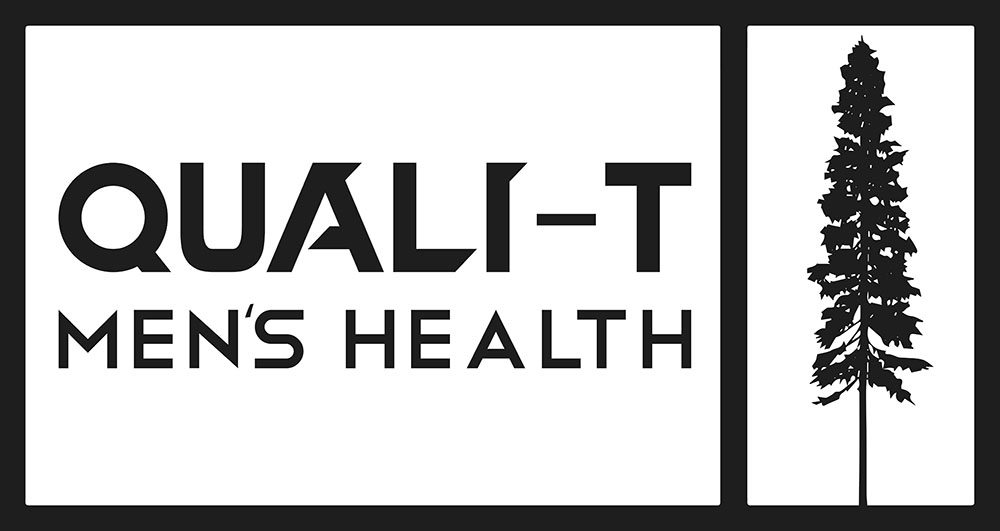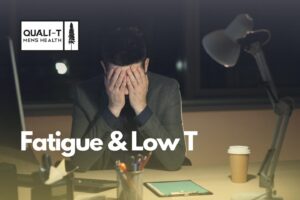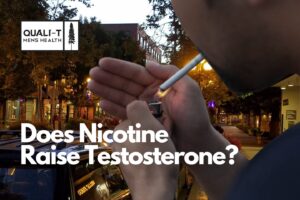
Testosterone replacement therapy (TRT) is primarily used to address symptoms of testosterone deficiency, such as fatigue, decreased libido, erectile dysfunction, and depressed mood. This is done by increasing serum testosterone levels to a physiological range (1). The impact of TRT on mood has been extensively studied, with mixed results regarding its potential to cause mood swings.
Positive Effects on Mood
Several studies have demonstrated that TRT can significantly improve mood parameters in hypogonadal men (hypogonadal = two testosterone levels drawn on two separate occasions before 10am and both less than 300ng/dL). For instance, a clinical research study involving 51 hypogonadal men found that TRT led to significant decreases in anger, irritability, sadness, tiredness, and nervousness, while improving energy levels, friendliness, and overall sense of well-being (2). These findings suggest that TRT can have a stabilizing effect on mood, reducing negative emotions and enhancing positive ones.
A systematic review and meta-analysis of 27 randomized placebo-controlled clinical trials (RCTs) also supported the mood-enhancing effects of TRT. The analysis revealed that testosterone treatment was associated with a significant reduction in depressive symptoms compared to placebo, particularly when higher dosages were administered (3). This indicates that TRT can be effective in alleviating depressive symptoms, which are often accompanied by mood swings.
Specific Populations and Conditions
In HIV-positive men with significant immune suppression and hypogonadism, TRT has shown substantial antidepressant effects. An interim report of a study involving 73 men indicated that 84% of those with mood problems at baseline were rated as much improved after eight weeks of TRT (4). Another study focusing on HIV-positive men found that 64% of participants with mood issues at baseline showed significant mood improvement after TRT (6). These studies highlight the potential of TRT to improve mood in specific populations with underlying health conditions.
TRT as an Adjunct Treatment
TRT has also been explored as an adjunct treatment for depression, particularly in cases where traditional antidepressants are ineffective. A study involving men with SSRI-refractory depression found that TRT led to rapid and dramatic recovery from major depression, with significant improvements in mood and quality of life (5). This suggests that TRT can be a valuable addition to conventional depression treatments, potentially reducing mood swings associated with depressive disorders.
Mood Swings and Adverse Effects
While the majority of studies report positive mood outcomes, the potential for TRT to cause mood swings cannot be entirely dismissed. The variability in individual responses to TRT, as well as differences in dosage and treatment duration, may contribute to mood fluctuations in some patients. People abusing testosterone and other steroids are at an increased risk for having “roid rage”. The overall evidence suggests that TRT is more likely to stabilize mood rather than cause significant mood swings.
Conclusion
In summary, the literature indicates that testosterone replacement therapy generally has a positive impact on mood, reducing negative emotions and enhancing positive ones. While individual responses may vary, the overall evidence supports the use of TRT as a mood-stabilizing treatment, particularly in hypogonadal men and those with specific health conditions. We have seen many men that are not technically hypogonadal still achieve great results with their mood and depression with TRT. Don’t let the numbers scare you away!
References
- 1 Barbonetti, A., D’Andrea, S., & Francavilla, S. (2020). Testosterone replacement therapy. Andrology, 8, 1551 – 1566. https://doi.org/10.1111/andr.12774.
- 2 Wang, C., Alexander, G., Berman, N., Salehian, B., Davidson, T., McDonald, V., Steiner, B., Hull, L., Callegari, C., & Swerdloff, R. (1996). Testosterone replacement therapy improves mood in hypogonadal men–a clinical research center study.. The Journal of clinical endocrinology and metabolism, 81 10, 3578-83 . https://doi.org/10.1210/JCEM.81.10.8855804.
- 3 Walther, A., Breidenstein, J., & Miller, R. (2019). Association of Testosterone Treatment With Alleviation of Depressive Symptoms in Men: A Systematic Review and Meta-analysis. JAMA Psychiatry, 76, 31–40. https://doi.org/10.1001/jamapsychiatry.2018.2734.
- 4 Rabkin, J., Wagner, G., & Rabkin, R. (1996). Treatment of depression in HIV+men: Literature review and report of an ongoing study of testosterone replacement therapy. Annals of Behavioral Medicine, 18, 24-29. https://doi.org/10.1007/BF02903936.
- 5 Seidman, S., & Rabkin, J. (1998). Testosterone replacement therapy for hypogonadal men with SSRI-refractory depression.. Journal of affective disorders, 48 2-3, 157-61 . https://doi.org/10.1016/S0165-0327(97)00168-7.
- 6 Rabkin, J., Rabkin, R., & Wagner, G. (1995). Testosterone replacement therapy in HIV illness.. General hospital psychiatry, 17 1, 37-42 . https://doi.org/10.1016/0163-8343(94)00062-I.





